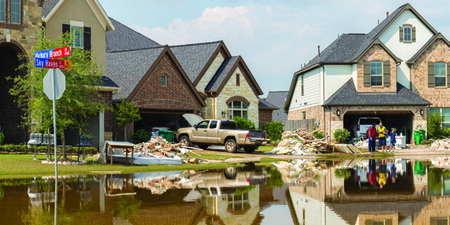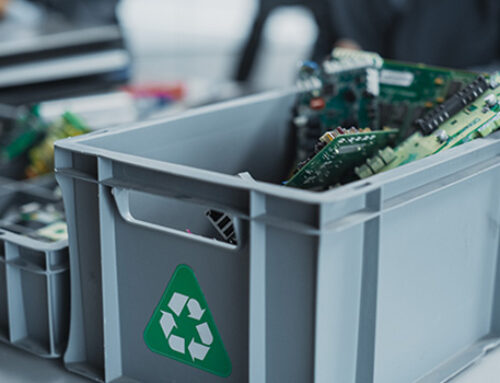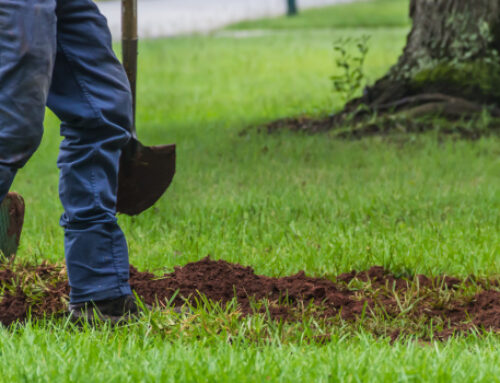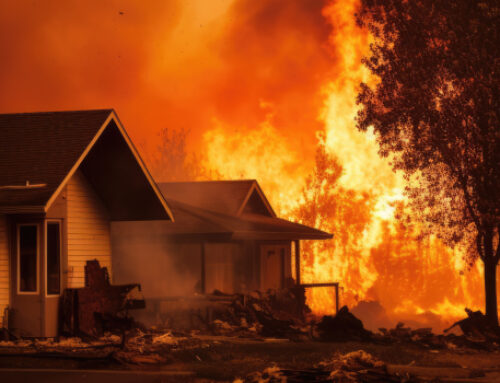With high winds, flooding, and storm surges, the amount of destruction a hurricane can bring to your home and community is no secret. To help ensure that you and your loved ones remain safe, even after the storm has passed, we’ve created an in-depth guide to cover everything you need to know when recovering from a hurricane.
Wait Until It Is Safe to Assess Damage
Once the storm has passed, you may be itching to either head home from where you evacuated or go outside to see the extent of the damage to your home.
If you evacuated, wait until local authorities have deemed it safe enough for your return. Once it has been deemed safe, be sure to avoid any flooded roads or washed-out bridges on your journey home.
If you didn’t evacuate, stay inside until the storm has fully passed. Utilize a battery powered radio to follow local weather reports and to receive updates from local officials to know when the threat has passed.
Take It Slow When Assessing Damage
Once it has been deemed safe to return home or go outside to assess the damage to your home, it’s important to move slow to keep yourself safe.
When inspecting around your home, be careful to look out for the following hazards:
- Downed or Loose Power Lines – If you notice a downed or loose power line in your area, be careful not to touch anything that may be in contact with the power line. These wires may still be live and are extremely dangerous. Report downed or loose power lines to authorities before taking any further action.
- Gas Leaks – Keep an eye out for any damaged or broken gas lines. If you suspect a gas leak in or around your home, stay out of the property until your utility company can inspect.
- Animals and Rodents – After a hurricane, it’s likely that rodents, reptiles, and other wild animals will be temporarily displaced from their usual dwellings. When inspecting around your home, be sure to move slowly to avoid coming in contact with any creature that may bite or carry disease.
Upon inspection, if you find anything that makes your home temporarily uninhabitable due to safety concerns, reach out to your insurance company to see if your policy covers temporary accommodations. If not, research hurricane relief programs in your area.
Take Inventory of Damage and Needed Repairs
When assessing the damage to your home, it’s important to be thorough to ensure that you don’t run into any issues when filing your insurance claims.
- Take several photos, and from different angles, of all areas that are needing repair prior to starting work.
- Wait until you contact your insurance company prior to making permanent repairs. It is likely that a representative from the insurance company will need to inspect damage to approve your claim. If needed, make immediate and temporary repairs that are required to protect your home from any further damage, like boarding up broken windows.
- Keep all records of your expenses while making temporary, necessary repairs. Collect receipts and bills so they will be readily available to send to your insurance company.
- Inventory any personal property that has been damaged. Create a list that includes what items were damaged along with a description of each item. When describing items include the brand or manufacturer, the estimated value, and age.
Extra Precautions to Keep in Mind
Even after the hurricane has passed, there are still some immediate precautions to keep in mind to keep you and your loved ones safe. Below, we list out extra precautions to keep in mind.
- Carbon Monoxide – If a hurricane leaves your home without power, you might find yourself relying on a generator. Gasoline-powered generators can be dangerous as they release carbon monoxide (CO). Carbon monoxide poisoning is one of the leading causes of post-storm related deaths. With this in mind, we recommend never using a portable generator inside your home or garage. For more information on generator safety, review the CDC’s tips here.
- Fire Hazards – If you find your home without power, you may be tempted to reach for candles as a power-free source of light. However, to avoid the risk of fire, it’s best to use battery-powered flashlights or lanterns.
- If you are returning home after evacuation, use flashlights when first inspecting for damage. Also, turn on the flashlights before entering your home. If you have an undetected gas leak, the battery from your flashlight could ignite gas.
- Water – If you’re experiencing flooding after a hurricane, there are a few extra precautions to keep in mind.
- Mold – It only takes 24 hours for mold to develop in wet, humid climates. If your home experienced any water damage, it’s almost guaranteed that you’ll have a mold issue on your hands. If you see any evidence of water damage when inspecting your home, be sure to wear a mask and gloves. Also, individuals with asthma or who are sensitive to mold should not enter the home until it has been properly treated. For more information on mold risks and how to prevent further growth, reference the CDC’s guide to mold here.
- Drinking Water – After a hurricane, public water supplies or private wells may not be safe to drink. To ensure that your water is safe, stay tuned to local reports to stay up to date on drinking water conditions and avoid drinking any water that is off-color, has an odor, or has floating debris.
- Standing Water – Standing water is common after a hurricane and can be a perfect breeding ground for mosquitoes and other disease-carrying insects to lay eggs. Be sure to empty any containers holding standing water around your home and spray a bug-repellent with at least 10-35% DEET to keep bug bites at bay.
- Food – If you experienced a loss of electricity for a prolonged period of time, it’s likely that a lot of the perishable food in your refrigerator and freezer has spoiled. If you evacuated and your power is on when your return home, it’s best to assume that your power had gone out at some point. Carefully inspect any frozen/refrigerated items for spoilage.
Dealing with the aftermath of a hurricane can be stressful, both mentally and financially. If you are struggling, there will be hurricane relief efforts available to assist you. We’ve listed some available resources here, but also be sure to check for new programs that were created for the specific hurricane you experienced and programs that are state-specific: FEMA, USA.gov, American Red Cross.







